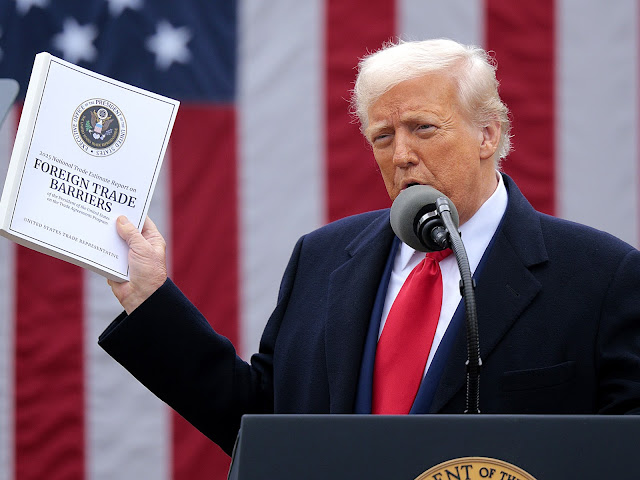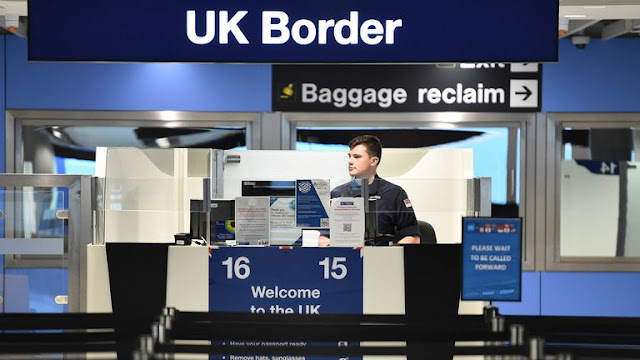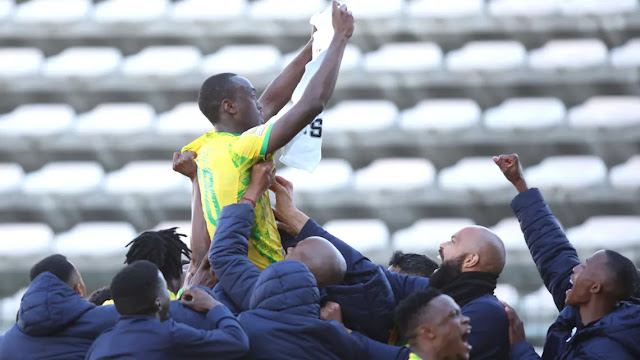New York, United Nations – In a resolute stance against what it perceives as coercive tactics, Iran has categorically dismissed the invocation of the snapback mechanism by Britain, France, and Germany (collectively known as the E3) under the 2015 nuclear agreement, officially termed the Joint Comprehensive Plan of Action (JCPOA). Speaking to reporters at a press conference in New York on Friday, August 29, 2025, Iran’s Ambassador to the United Nations, Amir Saeed Iravani, described the E3’s move as an unlawful attempt to exert political pressure and blackmail Iran. He emphasized that the action sidesteps the established dispute resolution procedures of the JCPOA, rendering it null and void.
Iranian Ambassador to the United Nations Amir Saeed Iravani
The E3’s decision to trigger the snapback clause, announced on Thursday, aims to reinstate pre-JCPOA sanctions on Iran, citing what they claim is Iran’s “significant non-compliance” with the nuclear deal. However, Ambassador Iravani countered these allegations, accusing the E3 and the United States of being the primary violators of the agreement. He endorsed a proposal by Russia and China for a technical extension of UN Security Council Resolution 2231 as a “practical step” to provide more time for diplomatic efforts to resolve ongoing nuclear disputes.
This development comes at a critical juncture in international relations, as tensions over Iran’s nuclear program continue to shape global diplomacy. The JCPOA, signed in 2015 between Iran and the P5+1 (the United States, Russia, China, Britain, France, and Germany), was designed to curb Iran’s nuclear activities in exchange for sanctions relief. However, the agreement’s implementation has been fraught with challenges, particularly following the U.S. withdrawal in 2018 under then-President Donald Trump. The E3’s recent move to invoke the snapback mechanism has reignited debates about the future of the JCPOA and the broader implications for international peace and security.
The E3’s Snapback Move: Context and Controversy
The snapback mechanism, enshrined in the JCPOA and backed by UN Security Council Resolution 2231, allows any party to the agreement to refer perceived violations to the UN Security Council, potentially leading to the reinstatement of pre-2015 sanctions on Iran. The E3’s invocation of this clause on August 28, 2025, marks a significant escalation in their approach to Iran’s nuclear activities. The European states argue that Iran’s actions, including its expansion of uranium enrichment and restrictions on International Atomic Energy Agency (IAEA) inspections, constitute a breach of the JCPOA’s terms.
Ambassador Iravani, however, dismissed the E3’s notification as both legally and morally baseless. He argued that the E3 lacks the standing to invoke the snapback mechanism, given their own failure to uphold their commitments under the JCPOA. “The E3 and the US violated the JCPOA first. They cannot now claim to act in good faith,” Iravani stated, referencing the U.S. withdrawal from the agreement in 2018 and the subsequent imposition of new sanctions by both the U.S. and the E3. He further noted that Iran has consistently documented these violations, notifying the UN Security Council, the UN Secretary-General, and the EU (as the JCPOA coordinator) of the repeated failures by the U.S. and E3 to meet their obligations.
The Iranian envoy’s remarks highlight a central point of contention in the JCPOA saga: the question of who bears responsibility for the agreement’s unraveling. Following the U.S. withdrawal, Iran initially adhered to the deal but began taking “remedial steps” in 2019, gradually scaling back its compliance in response to the reimposition of sanctions and the E3’s inability to deliver promised economic benefits. These steps, which include increasing uranium enrichment levels and limiting IAEA access, have been described by Iran as proportionate and reversible, designed to pressure the remaining JCPOA parties to fulfill their commitments.
Iravani emphasized that Iran’s actions have been “gradual, proportionate, and fully legal” under the terms of the JCPOA, which allows for such measures in response to non-compliance by other parties. He accused the E3 of distorting reality by portraying Iran as the violator while ignoring their own failures. “The E3’s action rewards the violator and punishes the victims,” he said, underscoring the perceived hypocrisy in their approach.
The Role of the U.S. and External Aggressions
A significant point raised by Iravani was the role of external aggressions in undermining Iran’s commitment to the JCPOA. He referenced attacks on Iran’s nuclear facilities, including a U.S. bombing of three Iranian nuclear sites in June 2025, which he described as a “grave violation” of the United Nations Charter, international law, and the Nuclear Non-Proliferation Treaty (NPT). These attacks, which occurred amidst heightened tensions with Israel, were reportedly supported by the U.S. and justified by the E3, further complicating diplomatic efforts to revive the JCPOA.
The bombing of Iran’s nuclear facilities represents a significant escalation in the ongoing conflict surrounding its nuclear program. While the U.S. and its allies have accused Iran of pursuing nuclear weapons—a charge Iran vehemently denies—these military actions have raised concerns about the potential for broader regional instability. Iravani argued that such aggressions, combined with the E3’s snapback move, undermine Iran’s cooperation with the IAEA and threaten the credibility of international institutions like the UN Security Council.
Despite these provocations, Iran has maintained its commitment to diplomacy, according to Iravani. “Iran has chosen to keep the path of dialogue open and continues to engage with the E3 and the IAEA,” he said, highlighting Iran’s restraint in the face of external pressures. This commitment to diplomacy is evidenced by Iran’s ongoing negotiations with the IAEA and its participation in talks aimed at restoring the JCPOA, even as it faces what it perceives as unjust sanctions and military aggression.
Russia and China’s Proposal: A Diplomatic Lifeline
Amidst the escalating tensions, Russia and China have proposed a short technical extension of UN Security Council Resolution 2231 as a means of preserving space for diplomacy. Resolution 2231, adopted in 2015, endorses the JCPOA and outlines the framework for its implementation, including the snapback mechanism. The proposed extension would delay the automatic reinstatement of sanctions, providing additional time for negotiations to address the current impasse.
Iravani endorsed the Russia-China proposal as a “practical step” that could facilitate a new understanding among the JCPOA parties. He urged the Security Council to support this initiative and resist being “misused” by those who have violated the agreement. “Responsible members must defend the rule of law and reject this unlawful, unfounded, and politically motivated attempt to reinstate terminated sanctions,” he said, addressing the E3’s snapback notification.
The Russia-China proposal reflects a broader divergence in the approaches of the JCPOA parties. While the E3 and the U.S. have adopted a confrontational stance, Russia and China have consistently advocated for dialogue and de-escalation. Their support for Iran’s position—that the E3’s snapback move is procedurally flawed and politically motivated—underscores the deepening geopolitical divide over the nuclear issue.
Implications for International Peace and Security
The E3’s invocation of the snapback mechanism has far-reaching implications for international peace and security. By threatening to reinstate pre-JCPOA sanctions, the move risks further destabilizing an already volatile region. Iran has warned that such “reckless” actions will meet with a “decisive and proportionate response,” signaling the potential for retaliatory measures that could escalate tensions.
Iravani cautioned that the E3’s approach undermines Iran’s cooperation with the IAEA, which has been a critical component of the JCPOA’s verification regime. The IAEA, tasked with monitoring Iran’s nuclear activities, has faced challenges in recent years due to Iran’s reduced compliance and restrictions on access to certain sites. The E3’s snapback move could further strain this relationship, potentially weakening the global non-proliferation framework.
Moreover, the envoy warned that the E3’s actions could damage the credibility and integrity of the UN Security Council. By attempting to reinstate sanctions without following proper procedures, the E3 risks eroding trust in the Council’s ability to uphold international law. “If unchecked, the E3’s path will gravely damage the credibility and integrity of the Security Council and place international peace and security at serious risk,” Iravani stated.
The broader geopolitical context adds another layer of complexity to the situation. The U.S.’s unilateral withdrawal from the JCPOA in 2018 and its subsequent “maximum pressure” campaign against Iran have already strained relations between Washington and Tehran. The E3’s alignment with the U.S. position, despite their initial commitment to preserving the JCPOA, has further eroded Iran’s trust in Western diplomacy. Meanwhile, Iran’s growing ties with Russia and China, as well as its strategic partnerships in the region, suggest a shift in its foreign policy orientation, which could have long-term implications for global security dynamics.
Iran’s Commitment to Diplomacy
Despite the challenges, Iran has reiterated its commitment to diplomacy as the preferred path to resolving the nuclear issue. Iravani emphasized that Iran will not negotiate under “threats or coercion,” but remains open to constructive dialogue. This stance reflects Iran’s broader foreign policy approach, which seeks to balance assertiveness with pragmatism in the face of external pressures.
Iran’s diplomatic efforts have included ongoing engagement with the IAEA and participation in indirect talks with the U.S., mediated by the EU, to revive the JCPOA. These talks, which resumed in 2021 under the Biden administration, have faced significant hurdles, including disagreements over the sequencing of sanctions relief and Iran’s nuclear rollback. The E3’s snapback move threatens to derail these efforts, potentially closing the window for a negotiated resolution.
Iravani’s remarks also highlight Iran’s frustration with the perceived double standards of the E3 and the U.S. He argued that the failure of the JCPOA talks to date is attributable to the Western parties, not Iran. “The failure of talks was due to the US and E3, not Iran,” he said, pointing to the imposition of new sanctions and the lack of tangible economic benefits for Iran as key obstacles.
The Broader Context: Regional and Global Dynamics
The controversy over the JCPOA and the E3’s snapback move must be understood within the broader context of regional and global dynamics. The Middle East remains a volatile region, with ongoing conflicts in Syria, Yemen, and the Israeli-Palestinian territories contributing to instability. Iran’s role as a regional power, coupled with its nuclear ambitions, has long been a point of contention for Western states and their allies, particularly Israel.
The U.S. bombing of Iranian nuclear sites in June 2025, reportedly in coordination with Israel, represents a significant escalation in this context. The attack, which Iran described as a violation of international law, has heightened fears of a broader conflict. The E3’s justification of the bombing, combined with their snapback move, has further strained relations with Iran, raising questions about the viability of diplomatic solutions.
At the same time, Iran’s alignment with Russia and China reflects a strategic pivot toward non-Western powers. Both Russia and China have their own geopolitical interests in supporting Iran, including countering U.S. influence in the Middle East and securing access to Iran’s energy resources. The Russia-China proposal for a technical extension of Resolution 2231 is a manifestation of this alignment, offering Iran a diplomatic lifeline while challenging the Western narrative on the nuclear issue.
Challenges and Opportunities for Diplomacy
The current standoff over the JCPOA presents both challenges and opportunities for diplomacy. On one hand, the E3’s snapback move risks escalating tensions and undermining the fragile progress made in recent negotiations. If sanctions are reinstated, Iran may further reduce its compliance with the JCPOA, potentially accelerating its nuclear program and increasing the risk of confrontation.
On the other hand, the Russia-China proposal offers a potential pathway to de-escalation. By extending the timeline for Resolution 2231, the international community could gain valuable time to pursue a comprehensive agreement that addresses the concerns of all parties. Such an agreement would need to balance Iran’s demand for sanctions relief with the E3 and U.S.’s insistence on verifiable nuclear restrictions.
For diplomacy to succeed, several conditions must be met. First, the E3 and U.S. must demonstrate a willingness to engage in good-faith negotiations, addressing Iran’s legitimate grievances about sanctions and economic isolation. Second, Iran must maintain its cooperation with the IAEA and refrain from further escalatory measures. Finally, the UN Security Council must play a constructive role in facilitating dialogue, resisting attempts to politicize the JCPOA dispute.
The Role of the International Community
The international community has a critical role to play in resolving the JCPOA impasse. The UN Security Council, as the body responsible for overseeing Resolution 2231, must uphold its mandate to promote international peace and security. This includes rejecting attempts to misuse the snapback mechanism for political purposes and supporting initiatives like the Russia-China proposal that prioritize diplomacy.
The IAEA, as the primary institution responsible for monitoring Iran’s nuclear activities, also has a pivotal role. Continued cooperation between Iran and the IAEA is essential to maintaining transparency and preventing further escalation. The international community should support efforts to strengthen this relationship, including providing technical assistance and resources to the IAEA.
Non-aligned countries and regional actors can also contribute to de-escalation by advocating for dialogue and restraint. Countries like India, Brazil, and South Africa, which have historically supported non-proliferation while maintaining neutral stances, could play a mediating role in bridging the divide between Iran and the Western powers.
Iran’s Domestic and Regional Considerations
The JCPOA dispute is not only an international issue but also has significant domestic and regional implications for Iran. Domestically, the nuclear program has long been a source of national pride, with many Iranians viewing it as a symbol of sovereignty and technological advancement. The imposition of sanctions and external pressures have fueled public frustration, particularly among younger generations who bear the brunt of economic hardships.
The Iranian government, led by President Masoud Pezeshkian, faces the challenge of balancing domestic expectations with international obligations. While the government has expressed a willingness to engage in diplomacy, it must also address hardline factions that advocate for a more confrontational approach. The snapback move by the E3 could strengthen these factions, making it harder for moderates to push for compromise.
Regionally, Iran’s nuclear program is closely tied to its broader geopolitical strategy. As a counterweight to U.S. and Israeli influence, Iran has cultivated alliances with groups like Hezbollah in Lebanon and the Houthis in Yemen, as well as state actors like Syria. The escalation of tensions over the JCPOA could embolden Iran to deepen these alliances, potentially destabilizing the region further.
Looking Ahead: A Path to Resolution
The current crisis over the JCPOA represents a critical juncture for international diplomacy. The E3’s snapback move, if pursued, could lead to a breakdown of the nuclear agreement and a further deterioration of relations with Iran. However, the Russia-China proposal offers a glimmer of hope, providing a framework for continued dialogue and de-escalation.
For a resolution to be achieved, all parties must prioritize diplomacy over confrontation. This will require the E3 and U.S. to reconsider their approach, acknowledging their own role in the JCPOA’s challenges and offering meaningful concessions. Iran, for its part, must demonstrate flexibility in its nuclear activities, ensuring that its actions remain within the bounds of international law.
The international community, including the UN Security Council, the IAEA, and non-aligned states, must work collectively to support a negotiated solution. By fostering an environment of trust and cooperation, they can help prevent the JCPOA dispute from escalating into a broader conflict with far-reaching consequences.
Conclusion
Iran’s rejection of the E3’s snapback mechanism and its endorsement of the Russia-China proposal reflect its unwavering commitment to diplomacy in the face of significant challenges. Ambassador Amir Saeed Iravani’s remarks at the UN underscore Iran’s position that it will not negotiate under threats or coercion, while remaining open to constructive dialogue. The E3’s attempt to reinstate sanctions, coupled with past violations by the U.S. and external aggressions against Iran’s nuclear facilities, has heightened tensions and raised questions about the future of the JCPOA.
The Russia-China proposal for a technical extension of Resolution 2231 offers a practical step toward preserving the nuclear agreement and creating space for diplomacy. However, the success of this approach will depend on the willingness of all parties to engage in good-faith negotiations and address the underlying issues that have plagued the JCPOA since its inception.
As the international community navigates this complex and high-stakes issue, the stakes could not be higher. A failure to resolve the JCPOA dispute could undermine global non-proliferation efforts, erode the credibility of the UN Security Council, and increase the risk of regional conflict. Conversely, a successful resolution could pave the way for renewed cooperation, economic benefits for Iran, and a more stable Middle East. The path forward lies in diplomacy, restraint, and a shared commitment to the rule of law.






